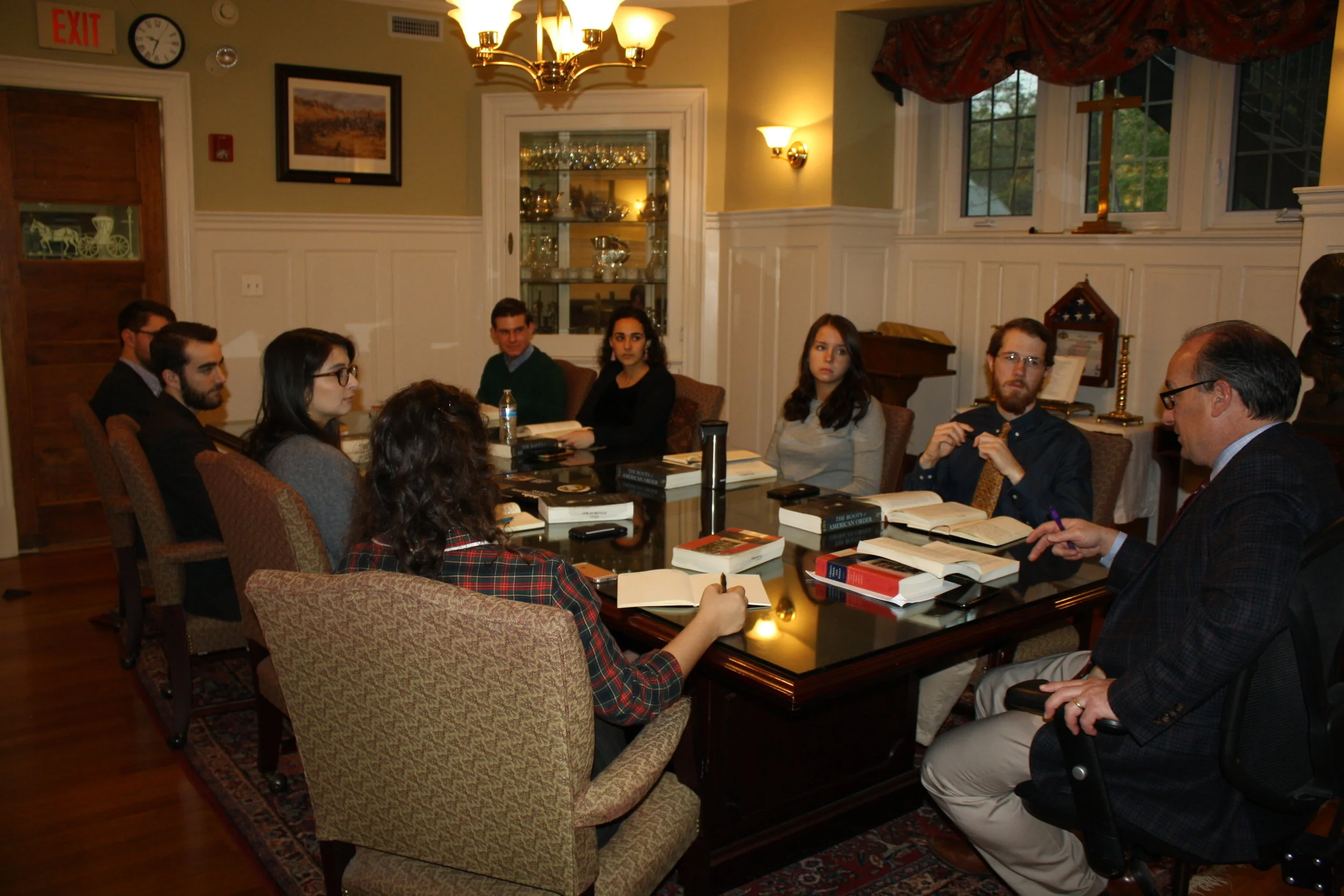Building upon previous modules focused on Christian worldview and Christian engagement within the culture and the natural law, the John Jay Institute's third module begins with a question: "Is there a tradition of Christian political thought?"
In the following essay—the third in our Learning Together series—Connor Smith, Fall 2018 John Jay alum, offers a reflection on the life-giving pulse of historical Christianity as it relates to the Church and the State.
Connor Smith, Fall 2018 John Jay alum, is attending graduate school.
The Beat of Historical Christianity
By Connor Smith
Christians can sometimes fall prey to the impression that they exist in this world as an isolated enclave of true faith.
Fortunately, participating in the John Jay Fellowship program has enabled me to tap into the pulse of western civilization and discover that Christianity has a consistent beat. The Body of the Church is not only a coherent, widely disseminated whole, but it finds within itself a true orthodoxy stretching back to the Church Fathers.
The stream runs clearest at the source, as they say, and that stream is the first 400 years of Christianity known as the Patristic age...
Intellectual giant Augustine and brilliant orator John Chrysostom are dominant figures on the scene and began our discussion concerning Church and state relations. Rome at this time, to put it mildly, was apprehensive about Christians. Scratching their heads in confusion, the Romans threw the Christians to the lions, not knowing what else to do with these atheists who wouldn’t worship the gods. Christian political theology at this time was thus largely undeveloped and at times antagonistic against Church relations with the state, given that political science belonged to the realm of “satanology,” according to one Church Father. However, as Christianity began to spread and gain greater traction in the empire, Christian thinkers began to question how the Church should related to the state more seriously. John Chrysostom developed the idea that government as a whole is mandated by God, but not individual governments, which could be acting contrary to God’s will. This distinction was critical for the early development of the idea that Christians should not endorse a wholesale rejection of the state, but that they did not have to accept persecutions as mandates from God either.
The pulse of Christianity in western civilization would begin to beat a little louder in late antiquity. While the roar of the colosseum began to fade, choirs of hymns singing glory to God would crescendo. Roman emperors Constantine and Justinian came to power, resulting in a dynamic shift in Church-state relations. Constantine declared the Christian faith to be the faith of the empire and Justinian argued that the role of the state was under and in support of the Church itself. Christians who for hundreds of years were constantly being coerced to render unto Caesar what was Caesar’s, suddenly found Caesar genuflecting before Christ and wielding the sword in His name.
Late antiquity decrescendoed into the dark ages obscured by a “double darkness…of sin and ignorance.” Yet a discernable bass of light and reason heralded by Thomas Aquinas rediscovered and completed Aristotle’s virtue ethics, which further informed Christian understanding of the telos of the state. Aquinas waged war on ignorance but Bonaventure built a bulwark for the Church, defending against sin spewing from the gates of hell. Mortified by the decadence of the Church, Bonaventure defended and expanded Francis of Assisi’s call to radical poverty to purify the Church of her decadence.
The Reformation onward may convey the appearance of an ensemble suddenly diverging on what piece to play, but listen carefully. The Church may be fatigued but we can still trace notes of Augustine in Luther’s Two Kingdoms; Catholics and Protestants still hum a tune about a virtue inculcating state.
Why does Church history matter? The Christian people are part of the greatest ongoing story about love and redemption. It is critical that we understand ourselves in relation to one another and to God. We are not radically autonomous individuals; we “know that the LORD Himself is God; It is He who has made us, and not we ourselves.” The Church still has several more movements left before the coda, but we can know that the pieces will be in the same vein as the beat that flowed before. Orthodoxy then, is the recording the Church looks to to unite us in the present and points the way for our complete understanding of the role of the Church and state.


